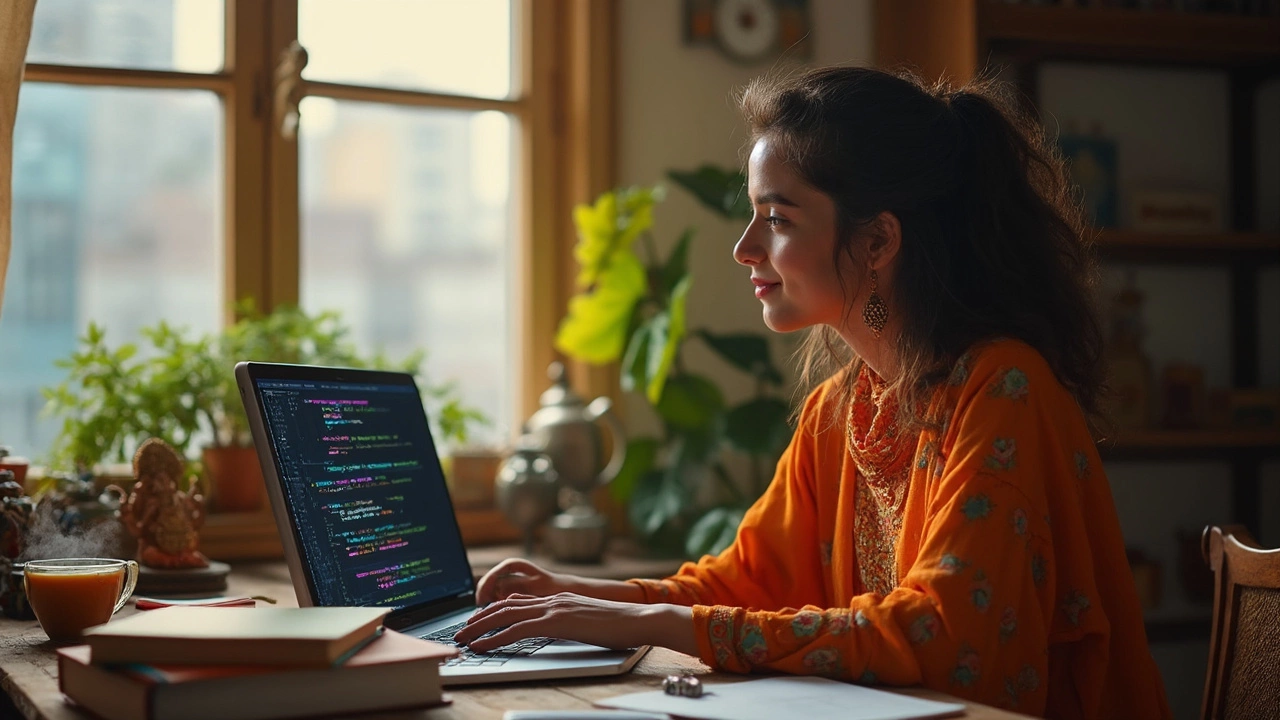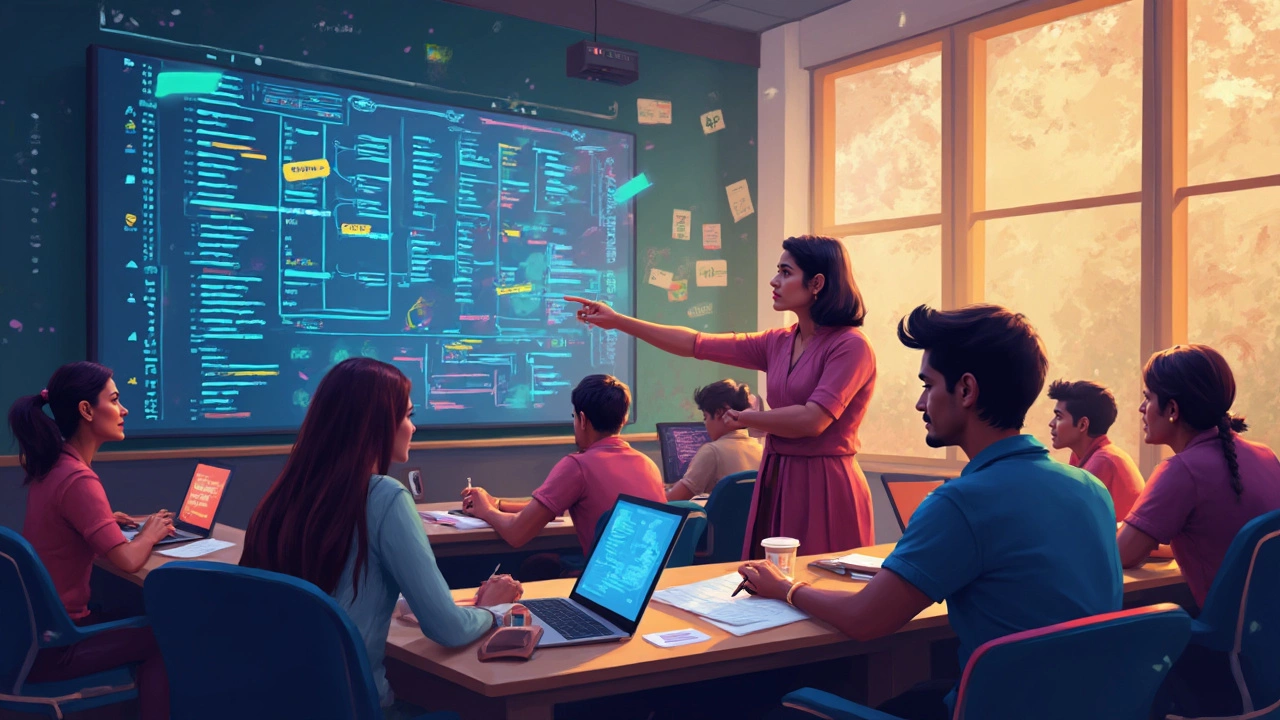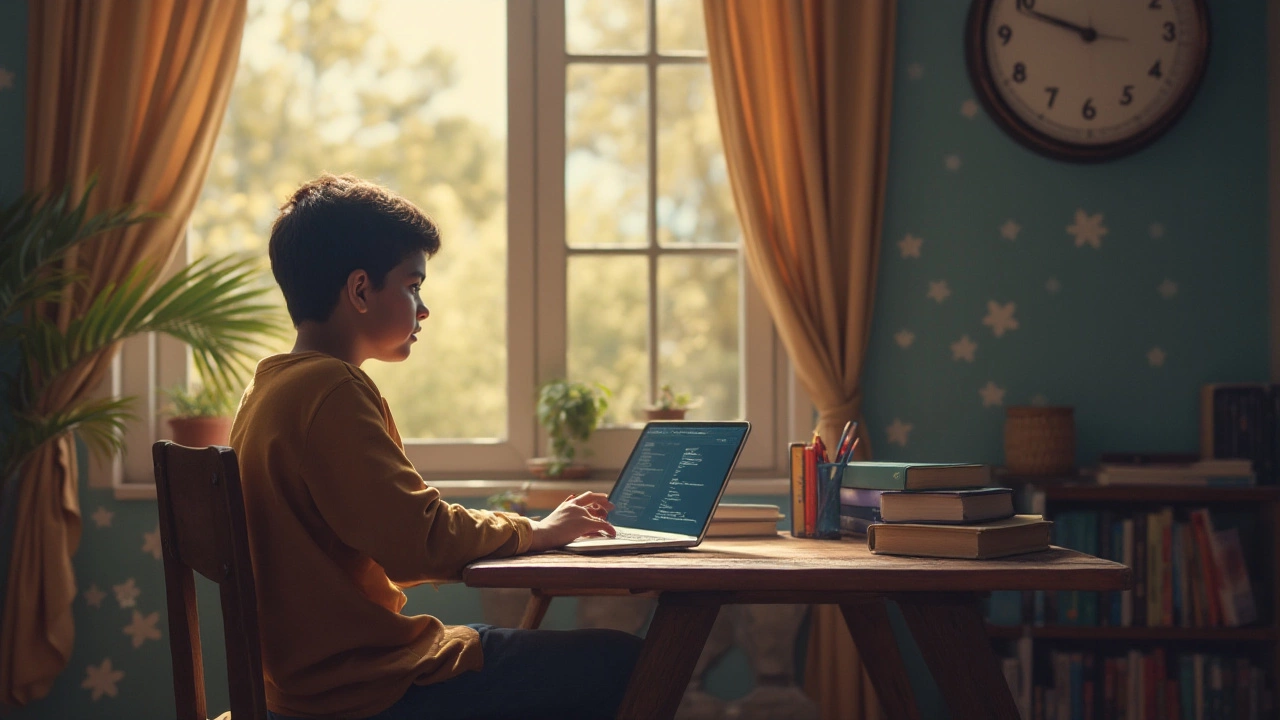Programming Made Simple: Free Courses, Real Tips, and How to Keep Going
If you landed here, you probably want to learn programming without the hype. Whether you’re a fresh high‑schooler, a working professional, or just curious, this page pulls together the most useful posts from our site. You’ll get clear steps to start coding, honest advice about the challenges, and a list of free resources that actually work.
Free Coding Courses to Jumpstart Your Journey
Our top pick for a free roadmap is the article Can You Learn Coding for Free? 2025 Roadmap, Best Free Courses, and FAQs. It breaks the learning path into four stages: basics, core language, projects, and job‑ready skills. Each stage lists three to five trusted platforms—like freeCodeCamp, Coursera’s audit mode, and MIT OpenCourseWare—so you never waste time on dead‑end tutorials.
If you prefer a step‑by‑step guide, check out How to Teach Yourself Coding: Step‑by‑Step Guide for Beginners. It gives a weekly schedule, from spending 30 minutes on syntax drills to building a simple website by week four. The key tip is to focus on one language at a time; most beginners succeed faster with Python before jumping into JavaScript or C++.
Common Hurdles and How to Overcome Them
Many people quit coding early because they think it’s "too hard." Our post Is Coding Hard to Learn? A Real Look at How Anyone Can Start Coding Today debunks that myth. The biggest roadblock isn’t the language, it’s the mindset. Treat problems as puzzles, not as exams, and give yourself permission to fail.
The article Why People Fail to Learn Coding: The Real Reasons You Didn't Expect lists three hidden traps: setting unrealistic milestones, skipping fundamentals, and learning in isolation. The fix? Set micro‑goals (like writing a function that prints your name), revisit core concepts weekly, and join a community—Discord servers or local meetups work great.
When you hit a bug that feels impossible, pause and read the error line by line. Write down what you expect and what actually happened. This simple habit turns vague frustration into a concrete question you can Google or ask on Stack Overflow.
Finally, keep a "code journal." Jot down what you learned each day, the bugs you fixed, and any new terms you Googled. Over time you’ll see progress that a simple IDE won’t show you.
Ready to explore more? Browse the other programming posts on this tag: free degree options, eLearning platform costs, and even the debate on whether coding should be taught in schools. Each article follows the same practical style—no fluff, just actions you can try today.
Start with the free roadmap, set tiny goals, and remember that coding is a skill you build one line at a time. Happy learning!
How Long Does It Really Take to Learn to Code?
Ever wondered how long it actually takes to learn coding? This article untangles the real timelines, from dabbling in your first lines of code to being able to build your own project. You’ll get honest answers about what impacts your progress, the pitfalls beginners hit, and a realistic look at how much effort is needed at each stage. We’ll toss out vague promises and focus on what you can actually expect. Whether you’ve got an hour a day or want to dive in full-time, this guide cuts through the noise.
Can You Learn Coding If You're Bad at Math?
Wondering if your lack of math skills might hold you back from learning to code? Dive into this article to uncover the truth about coding and math. Spoiler: being bad at math doesn't mean you can't become a proficient coder. While math can definitely help, coding is more about logic and creativity. We explore practical tips for those hesitant about math but passionate about coding.
Programming vs. Coding: What's the Difference?
Understanding the difference between programming and coding is essential for anyone entering the tech world. While coding involves writing the specific instructions computers need to perform tasks, programming encompasses the entire process of creating software, including planning, designing, testing, and more. Distinguishing these terms helps beginners choose learning paths that align with their goals. Here's a closer look at what sets them apart and how each plays a role in the tech landscape today.
Understanding the Key Differences Between Coding and Programming
Coding and programming are terms often used interchangeably in the tech world, but they are not the same. Coding is the process of writing lines of code, while programming involves designing the whole program, problem-solving, and creating algorithms. Understanding the distinction is vital for anyone stepping into the world of technology. This article explores these differences, offering insights and practical tips for beginners to understand their roles in software development.
Mastering Coding with Just 1 Hour a Day: Is It Possible?
Diving into the world of coding doesn't necessarily mean you have to invest countless hours each day. With focused and effective methods, dedicating just 1 hour a day can be sufficient to develop a strong foundation in coding. This article explores different strategies, effective learning techniques, and the pros and cons of such an approach, aiming to help newcomers strategically plan their coding journey.




